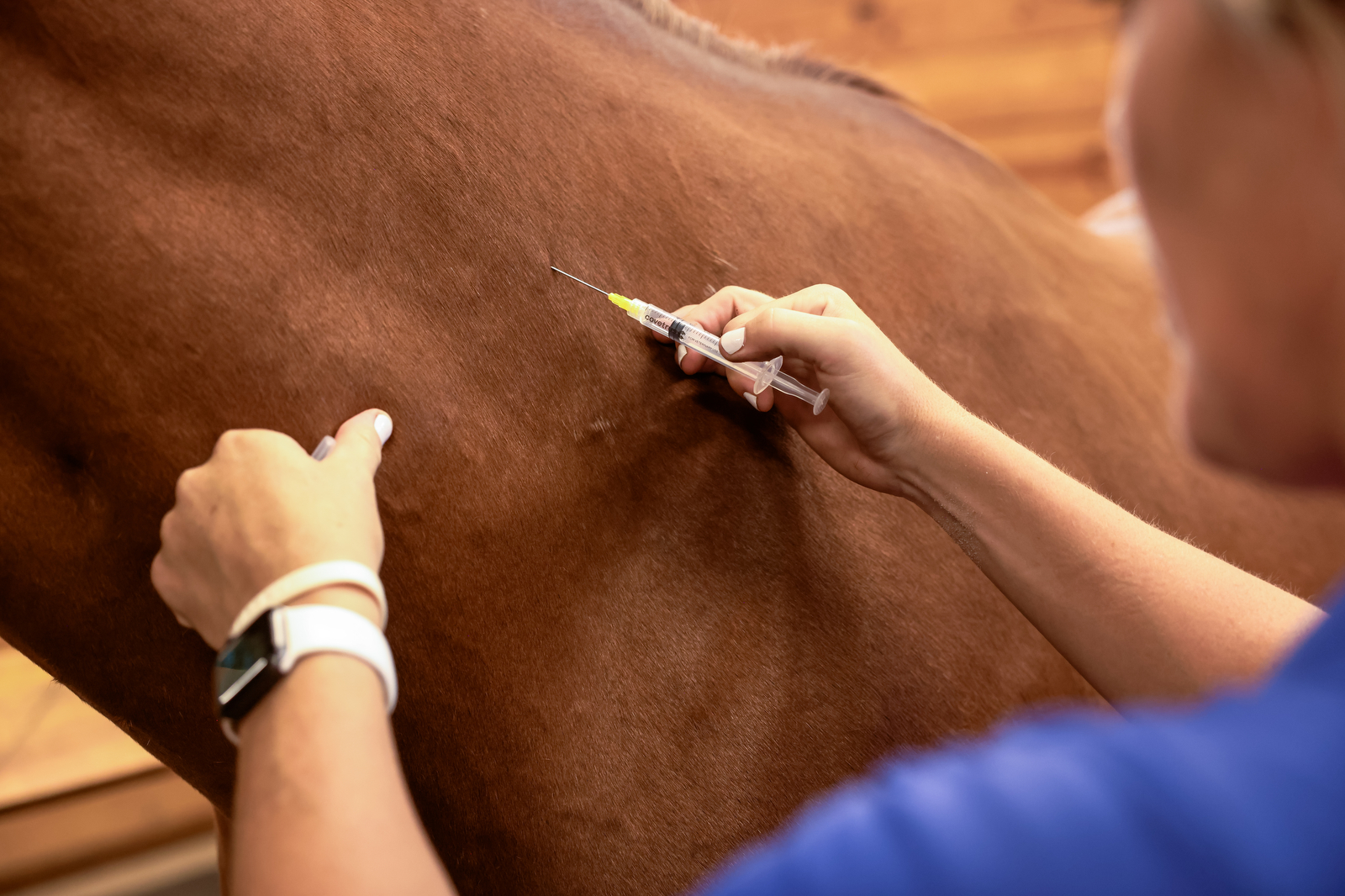The start of another Winter Equestrian Festival in Wellington, FL has arrived, and with that the influx of horses from all over the country. And just like with people packed in airplanes, horses at WEF will be swapping breath in the warm-up ring and in the tents. Yet unlike people and their COVID vaccines, some equine vaccines are mandatory – I’m talking to you, FEI horses!
Common Vaccines in the U.S.
To protect your horses, your veterinarian will be administering vaccines once or twice a year. A standard set of vaccines in the U.S. may include: Influenza, Rhinopneumonitis, Rabies, Eastern and Western Encephalitis, and Tetanus. Your owner/trainer may decide to have more or less than the above list, according to their veterinarian’s recommendations, geographic location, and other risk factors. Some vaccines come together in one bottle, allowing for one injection site for multiple vaccines. For instance, Influenza and Rhino are commonly paired together in the same bottle.
Possible Side Effects
Your veterinarian may administer the vaccines in the neck via an intramuscular injection, or up the nose with an intranasal inoculation. The horses may be a little sore and swollen for the next few days at the injection site, which is normal. In fact, your veterinarian might have also left pain medication to put in your horse’s grain to help with the soreness. Occasionally, the horses can develop a fever, become lethargic, and even stop eating. If you notice these behaviors, give your vet a call and they can create a plan to help the animal return to normal.
Emergency Call
Things to look for that require an emergency vet call are foul-smelling discharge oozing from the injection site; hives breaking out all over the body; trouble breathing; or acting colicky. I find it best to keep a record of when each animal got vaccinated, which side of the neck they received each vaccine, and how they reacted. This way, if one horse did have a reaction, your veterinarian can perhaps come up with an alternative plan for the next time.
At the end of the day – you are the first line of defense for these animals. You know them best. Anything out of the ordinary should be a red flag and it’s up to you to advocate for them in the best ways you can.
On human use of equine meds… yikes.
Horse people are weird. I have personally observed an old horseman inject himself in the leg with Adequan for his aching joints, yet the very thought of a flu shot terrified him. Another horror story: a horse trainer injected himself with Osphos after he broke his hand in an effort to speed up his healing. How do you think that worked out for him? Not good, he ended up with major kidney stones. Have fun passing those! Moral of the story – Please don’t inject yourself with substances formulated for horses, no matter how brilliant your idea seems.
Proof of Vaccination
If you’ve shown at any recognized horse show then you know you’ll need a proof of vaccination form for every horse competing. These forms certify that the horse is up to date on its Equine Influenza booster, and can only be completed by a veterinarian. Please get all of your paperwork done in a timely manner, so that your mistake doesn’t become your veterinarian’s problem. Don’t piss off your vet by asking for your proof of vaccination at the very last second!
Comment below to tell us if you found this useful or let us know what horror stories you’ve witnessed!



Honestly, deciding what requires a vet call or not can be so nerve-racking! It’s really helpful to know which side effects are somewhat expected and which should get some higher level attention.